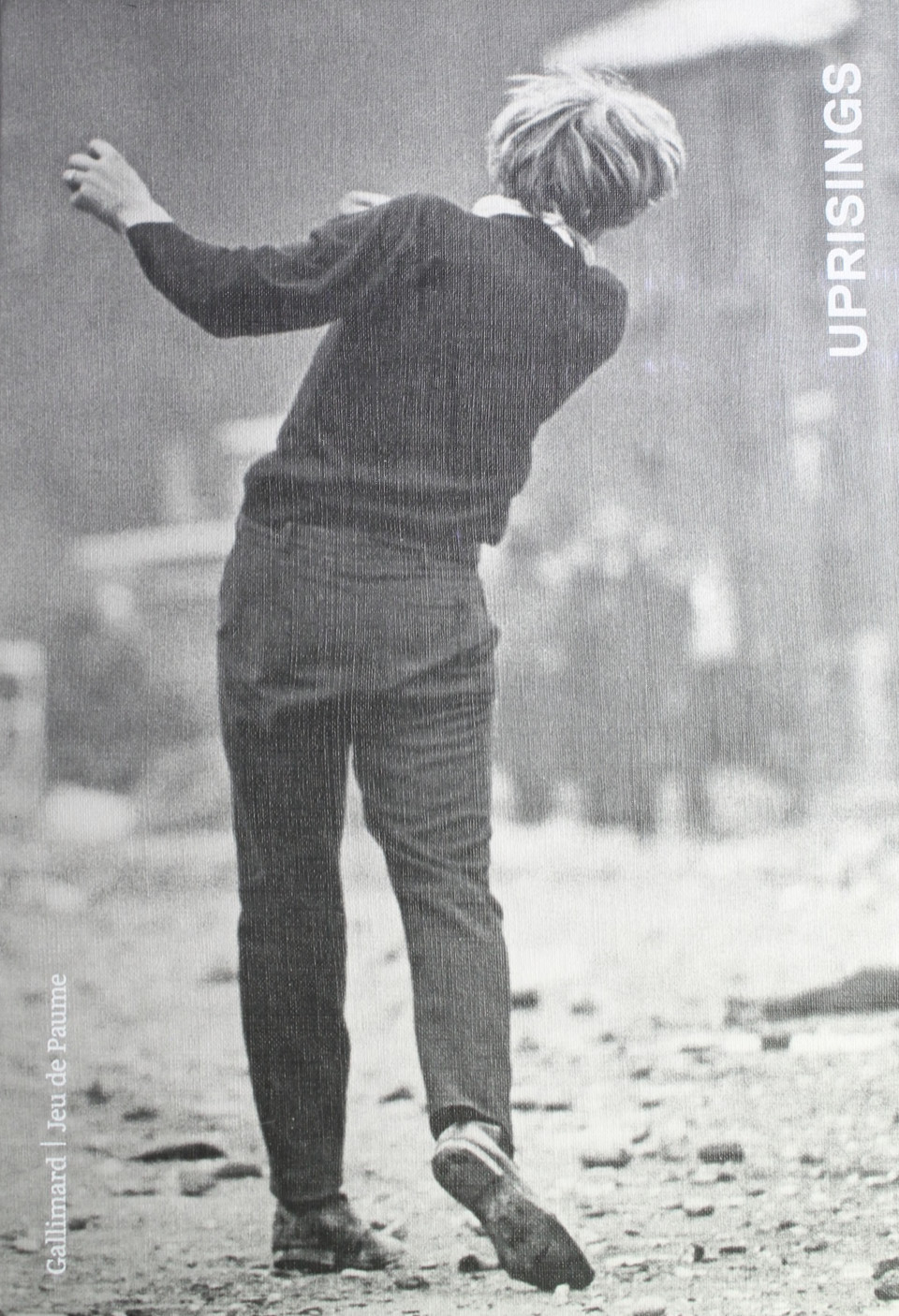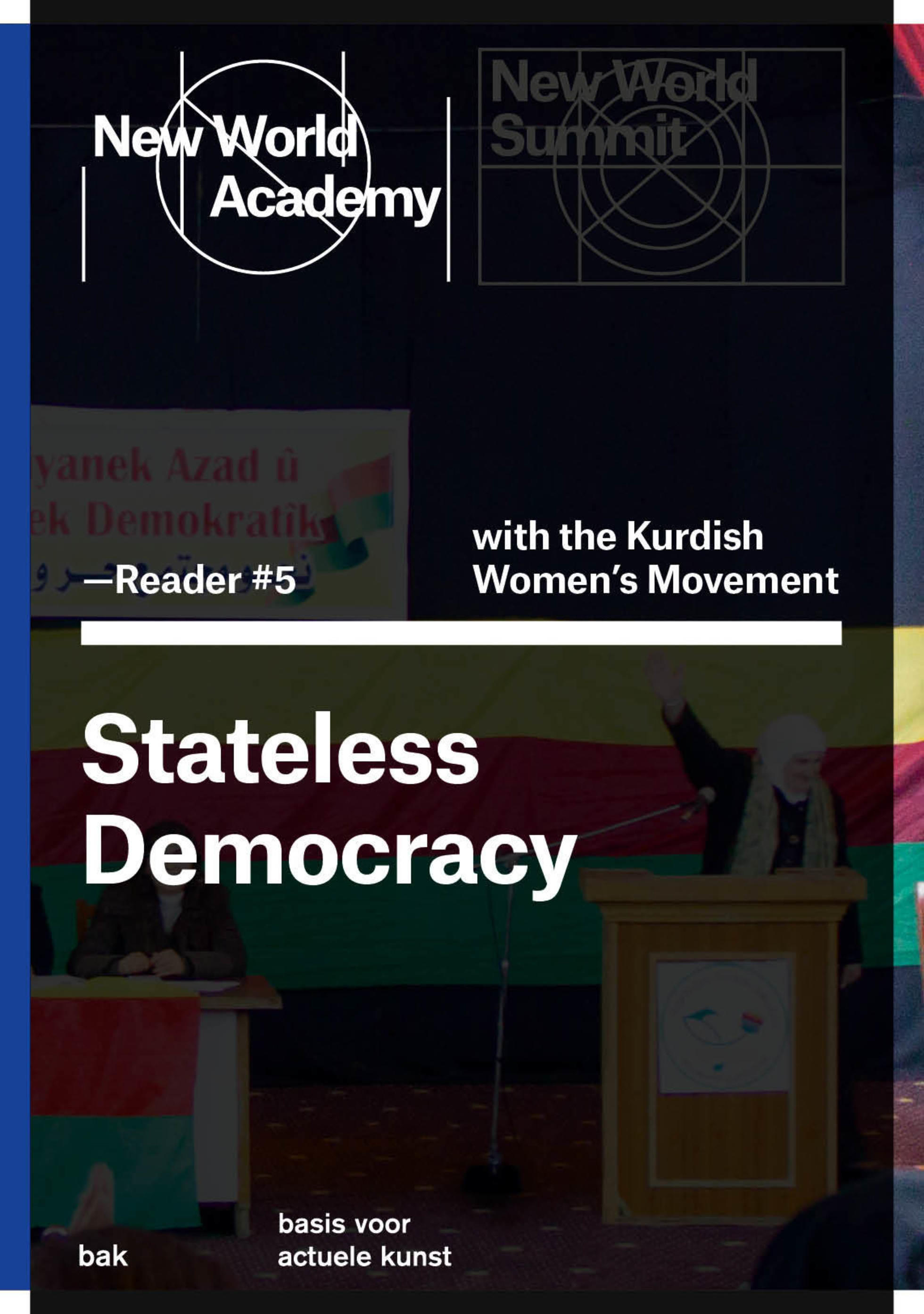Georges Didi-Huberman (ed.): Uprisings (2016)
Filed under book | Tags: · art, art history, protest, revolution, social movements

“While the notion of revolution, rebellion, and revolt isn’t alien in contemporary society’s vocabulary, the object of its action is replete with collective amnesia and inertia. That is why analyzing the representations of “uprisings”—from the etchings Goya, to contemporary installations, paintings, photographs, documents, videos, and films—demonstrates an unequivocal relevance to the social context in which we are living in 2016.
Constructing a chronological narrative or an exhaustive review of “uprisings” is not the aim. Thousands of representations of the gesture to say “NO,” to shout “STOP,” or to raise the banner “THEY SHALL NOT PASS” exist. They are known by women, men, and children, by workers, artists, and poets, by those who cry out and those who are silent, by those who weep, who mourn and those who make them. Uprisings is a montage of these words, gestures, and actions, which defy submission to absolute power.” (from the Foreword)
Published on the occasion of the exhibition Uprisings (Soulèvements) presented at the Jeu de Paume, Paris, from 18 October 2016 to 15 January 2017.
Foreword by Marta Gili
Introduction by Georges Didi-Huberman
Texts by Nicole Brenez, Judith Butler, Marie-José Mondzain, Antonio Negri, Jacques Rancière
Publisher Jeu de Paume, Paris, and Gallimard, Paris, 2016
ISBN 2072697298, 9782072697296
420 pages
Exhibition reviews: Joseph Nechvatal (Hyperallergic), Vivian Sky Rehberg (Frieze), Emily Nathan (Artnet).
PDF (removed on 2017-6-9 upon request from distributor)
Comments (3)New World Academy Reader, 5: Stateless Democracy (2015)
Filed under book | Tags: · democracy, gender, governance, jineology, kurdistan, politics, revolution, rojava, women

“New World Academy, an alternative learning platform for art and politics established by artist Jonas Staal and BAK has entered its fifth sequence. Developed together with the Kurdish Women’s Movement as a nomadic platform that unfolding throughout 2015, the fifth sequence of the New World Academy explores—from artistic, activist, and scholarly perspectives—the proposition of delinking democracy from the nation-state: the notion of “stateless democracy.” On this occasion, the fifth reader of the New World Academy, titled Stateless Democracy, has been published.
If initially the Kurdish struggle, led by the Kurdistan Workers’ Party (PKK), had aimed to establish an independent state, since the 1990s PKK leader Abdullah Öcalan, together with the Kurdish Women’s Movement, have turned to questioning the patriarchal and capitalist nature of the very concept of the nation-state itself. Within this process the Kurdish revolutionary movement developed an alternative model called “democratic confederalism” or “stateless democracy” that invoked a confederate composition in which gender-equality, self-governance, secularism, cultural diversity, communal economy, and social ecology form key pillars.
Since 2012 this proposition has been put fully into practice in Rojava, Western Kurdistan in Syria, in alliance with the peoples of the region. New World Academy Reader #5: Stateless Democracy provides key texts that offer an overview of both the political and cultural dimensions comprising what has now come to be known to history as the Rojava Revolution. The texts in the reader are as much an introduction to the model of stateless democracy practiced in Rojava, as a potential political paradigm through which to confront the many related crises in politics, economy, and ecology that we face across the world.”
With contributions by: Kajal Ahmed (poet and journalist), Ahmet Hamdi Akkaya (political and social scientist), Janet Biehl (writer, editor, and graphic artist), Murray Bookchin (libertarian socialist author), Dilar Dirik (researcher and representative of the Kurdish Women’s Movement), Zîlan Diyar (Kurdish guerrilla fighter), David Graeber (anthropologist), Havin Güneşer (journalist and spokesperson of “Freedom for Abdullah Öcalan – Peace in Kurdistan”),Joost Jongerden (sociologist and anthropologist), Gönül Kaya (journalist and representative of the Kurdish Women’s Movement), Abdullah Öcalan (founder and leader of the Kurdistan Workers’ Party (PKK)), Pinar Öğünç (journalist), Jonas Staal (artist and writer), and Hito Steyerl (artist, documentary filmmaker, and writer).
Edited by Renée In der Maur and Jonas Staal in dialogue with the Kurdish Women’s Movement (and in particular Dilar Dirik, Kurdish activist and a PhD student at the University of Cambridge, Cambridge)
Publisher BAK, basis voor actuele kunst, Utrecht, 2015
ISBN 9789077288221
256 pages
Out of print, now open access
Aleksandr Deineka (1899-1969): An Avant-Garde for the Proletariat (2011) [EN, ES]
Filed under catalogue | Tags: · art, avant-garde, painting, revolution, russia, socialist realism, soviet union

“This is the first exhibition and publication to present this outstanding figure of socialist realism – and, by extension, the historical period from which his work was borne – in a twofold context: the end of the avant-garde and the advent of Soviet socialist realism. It covers Deineka’s entire oeuvre, from his early paintings of the 1920s to the twilight of his career in the 1950s, when the dreamlike quality of his first works gave way to the harsh materiality of everyday life, the life in which the utopian ideals of socialism seemed to materialize. Combining Deineka’s graphic work, posters and contributions to illustrated magazines and books with his monumental paintings, this catalogue displays a variety of subjects: factories and enthusiastic masses, athletes and farmers, the ideal and idyllic image of Soviet life.”
With essays by Manuel Fontán del Junco, Christina Kiaer, Ekaterina Degot, Boris Groys, Fredric Jameson, Irina Leytes, and Alessandro De Magistris. Includes an extensive section with documents of the Russian avant-garde, Revolutionary Art and Socialist Realism (1913-35) and texts by and about Deineka (1918-64).
Publisher Fundación Juan March, Madrid, 2011
ISBN 9788470755927, 8470755927
440 pages
Exhibition
Publisher
WorldCat (EN)
Deineka: An Avant-Garde for the Proletariat (English, 30 MB)
Deineka: Una vanguardia para el proletariado (Spanish, 30 MB)

